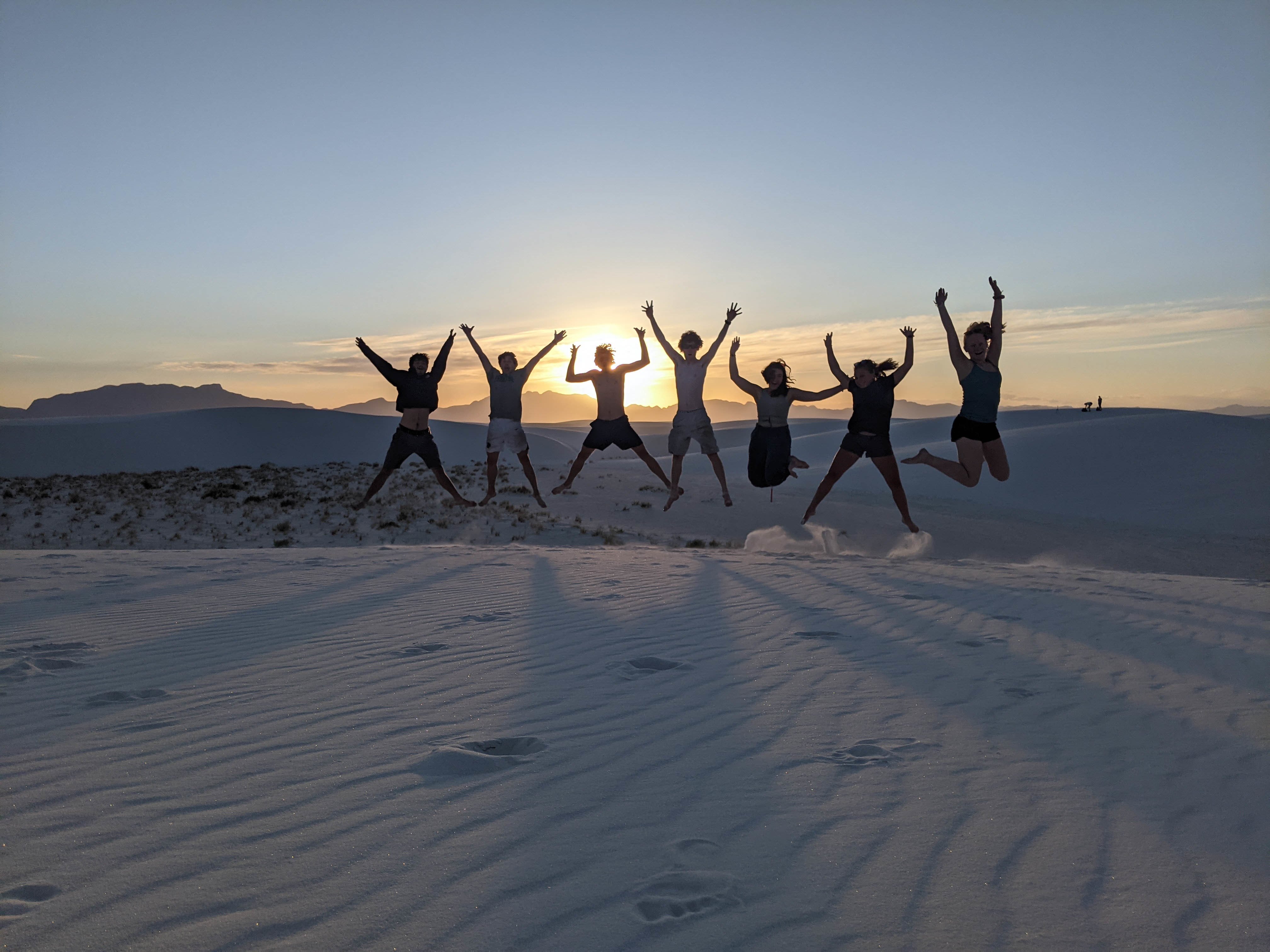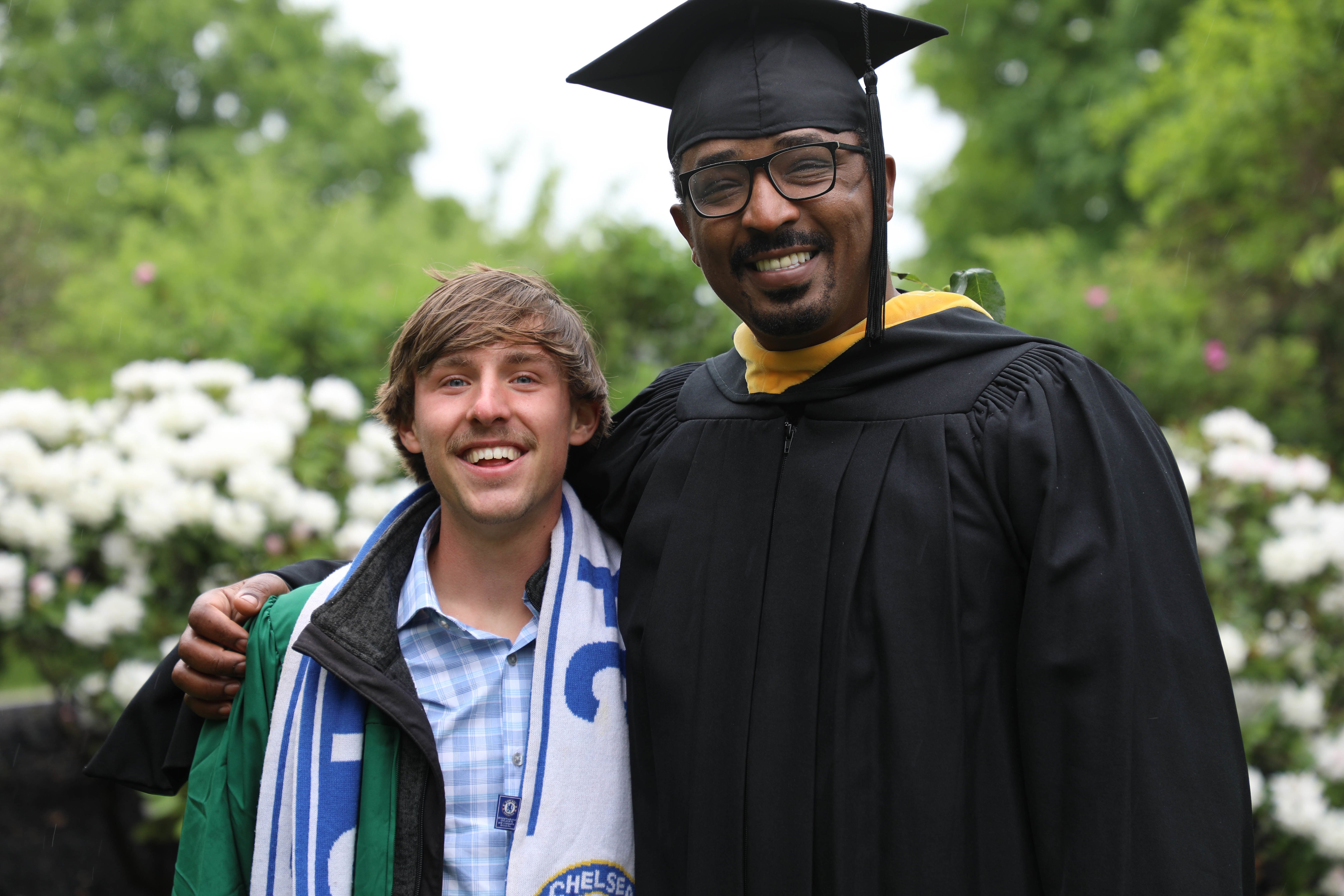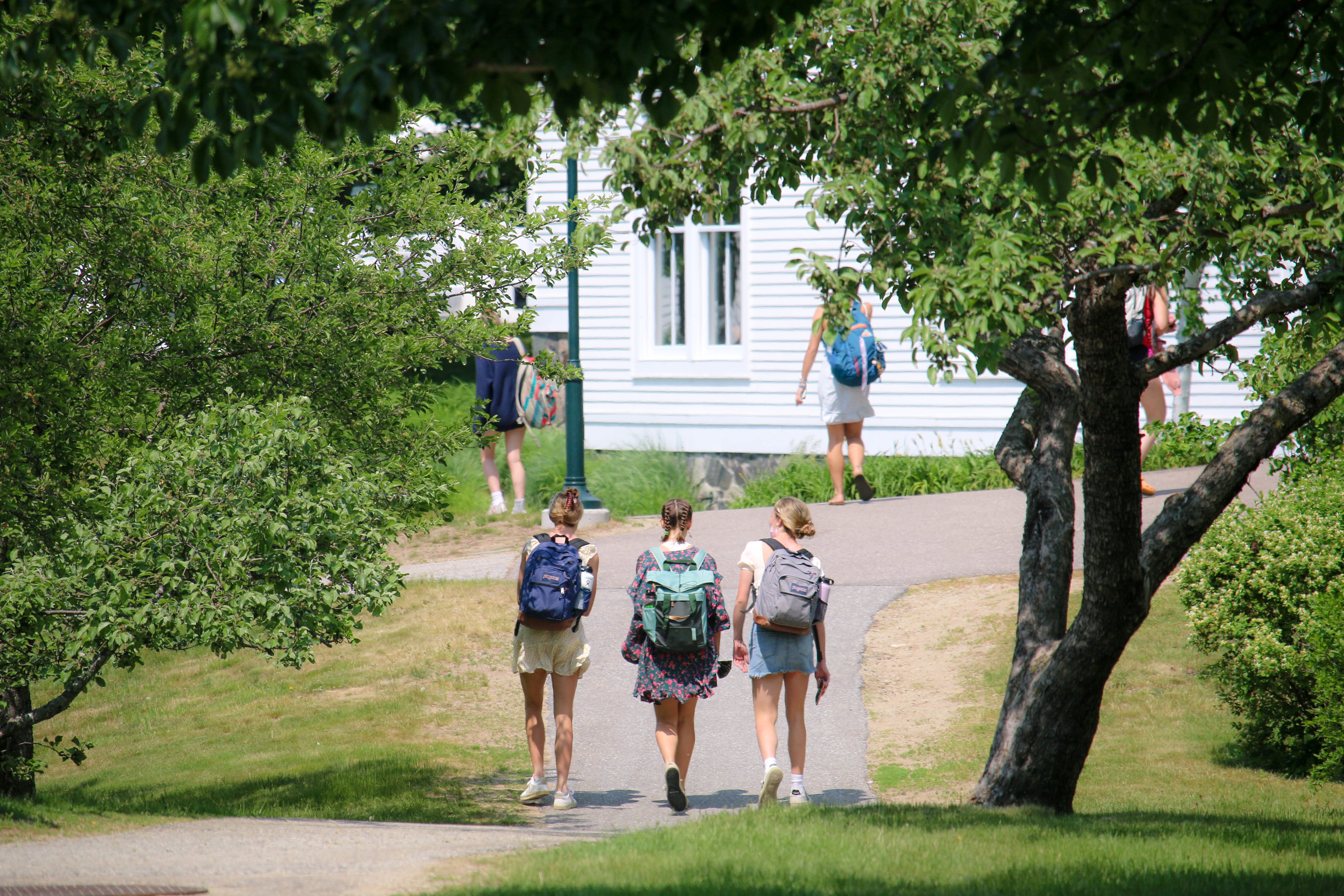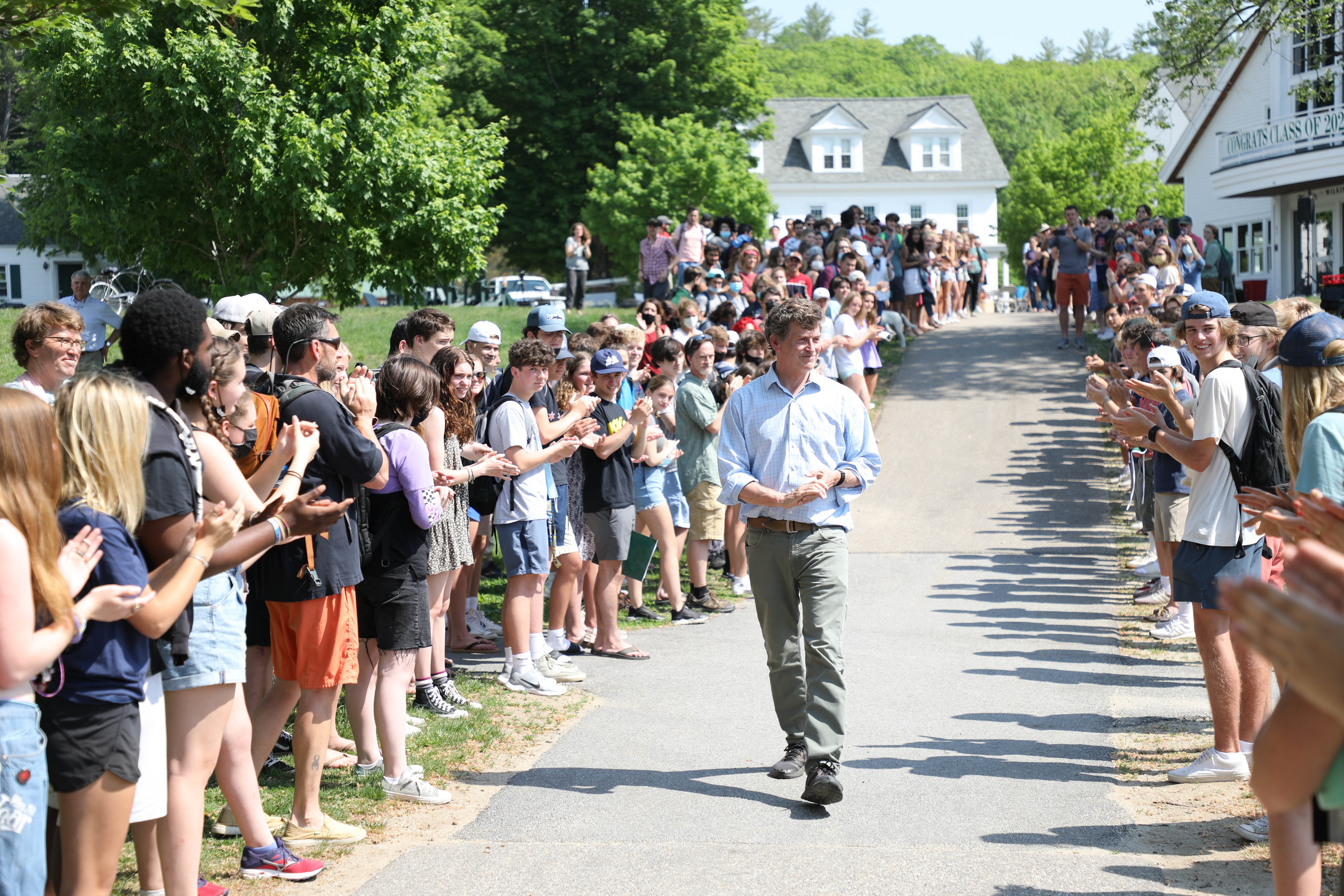It’s been just over two weeks since we celebrated the Class of 2021. We each have taken a deep breath, spent plenty of time at Elbow Pond floating under the watchful eye of Ragged Mountain alongside friends and reflecting on the school year. We’ve written much about Covid-19 and the impact on Proctor, the resiliency and grit and perseverance that were required of students and adults alike, but maybe our success was more about human connection and collaboration than we thought.

Sociologist Nicholas Christakis, the director of the Human Nature Lab at Yale, shared a conversation with Krista Tippet on the On-Being podcast this past week that acutely shined a light on the remarkable evolutionary benefits of our ability as humans to surrender our individuality and work toward a collective goal. Christakis notes, “What I’m interested in is not so much the qualities that make a human being as an individual good, I’m interested in the qualities that make a collective good. How is it that a group of humans come together to form a good society, and in what way and to what extent has evolution equipped us with these capacities?”

Throughout the conversation (you can listen to the whole podcast HERE), Christakis discusses how our individuality actually serves as core to our human connection:
“One of the paradoxical elements of the social suite is the capacity for individual identity — that is to say that we are all unique. And this might seem quite odd. How could our uniqueness be essential to our socialness? But it is. And the reason is as follows — that we use our faces to communicate our unique identity. So every one of us has a different-looking face. Why? Why is that? Why don’t we all have the same face? It’s an evolutionary luxury that we are able to each have a different face. Every kidney, to do its job, in principle should function in the same way. But every face, to do its job, should in principle look different. They should all be different from one another. And not only that, not only do we all have different faces, but you can look out at a sea of faces, and you have the brainpower to distinguish one person from another, which is also an evolutionary luxury...
In order to sustain friendships, you have to be able to distinguish one conspecific from another. And that relates to our capacity to go down a level, to the level of individuals, to start seeing each person as a unique human being, not as a kind of member of a group…”

On Proctor’s homepage is the tagline, “Which Path Will You Choose?”. Its intent is to communicate the breadth of opportunities that exist for each student at Proctor. But perhaps we need to change this. It’s misleading, after all, because Proctor is so little about the individual journey, and instead about learning how an individual learns to become part of something greater through the relationships formed with friends and teachers. Our collective work of building community helps students move beyond all that is associated with the “I” generation - the iPhone, iPad, my playlists, my music, my style, my brand - toward a new kind of social network described by Christakis. “The kind of social networks I talk about and am interested in, of course, are not the recent, online variety, but the kind of networks that we humans have been making for tens of thousands of years — the face-to-face networks that we’re all embedded in and that shape our lives.”

It is through these human social networks that we come to understand the power of living in community. It takes trials, like the past year, to fully appreciate the collective strength that exists because we have each other. Christakis discusses human goodness at the core of the term “sociodicy”, or the justification for a society existing. Evil exists in the world, bad things happen (often to good people it seems), humans endure pain and suffering, but it is through these challenges that the good of our humanity is refined. We do not exist alone. We are the product of our relationships with each other, and at Proctor, those relationships, our ability to empower our students and each other to be woven into a new kind of social network, serve at the core of our sociodicy.








